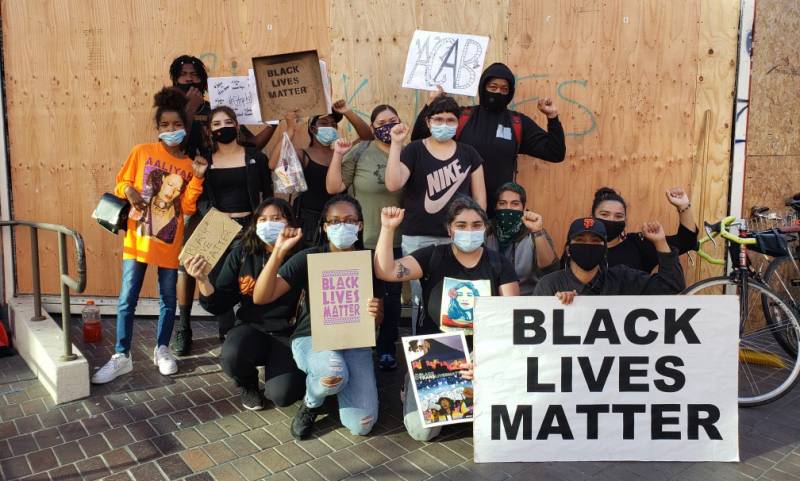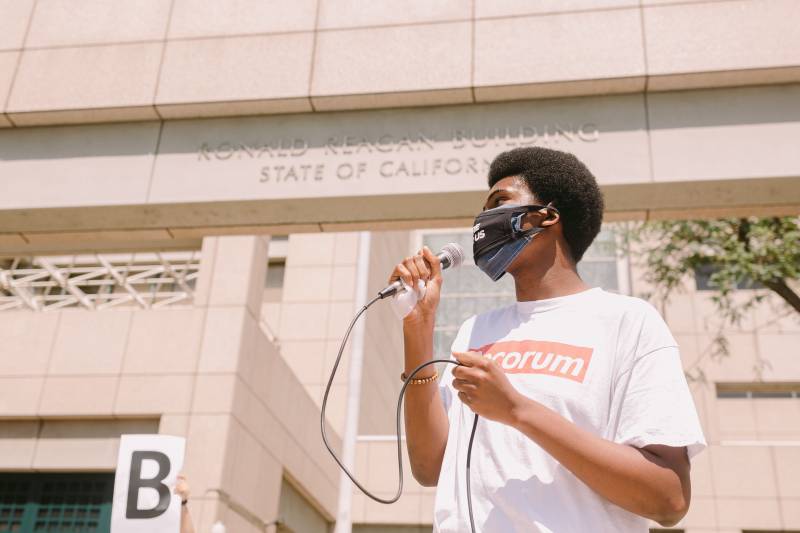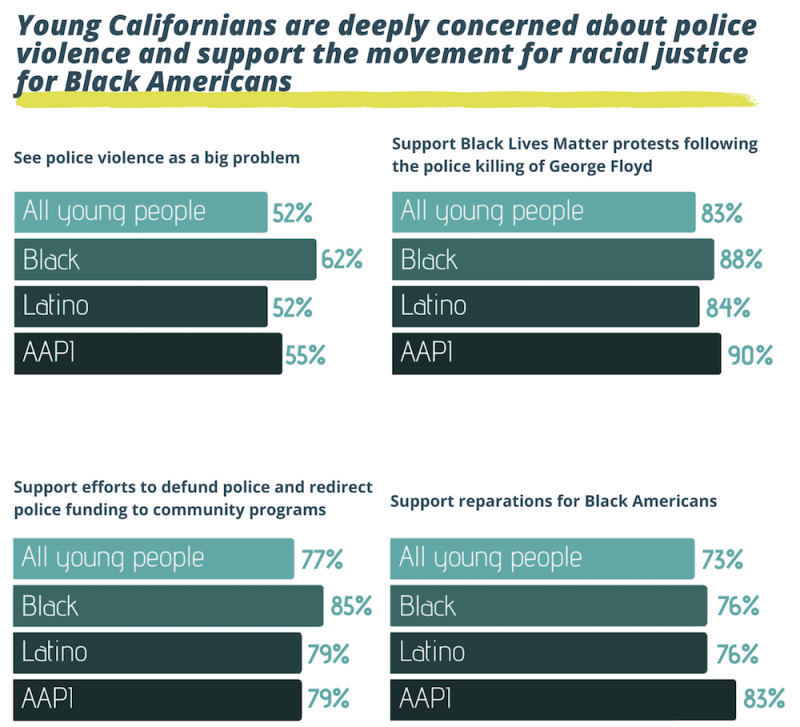Like many young people in California, UC Berkeley sophomore Racquel Richardson has had to deal with a lot in 2020.
When her campus transitioned to distance learning she moved back home with her mom in Oakland. Then, she had to pack again—this time, to help her mother relocate to the East Coast in search of more affordable housing. Richardson is staying behind and looking for her own place, but she can’t exactly ask other family members for financial help: her dad and grandmother’s business, a hair salon, is currently closed because of the pandemic. And other responsibilities keep stacking up, including helping her young siblings transition to distance learning while she keeps up with her own online classes.
Even with all these difficulties, Richardson has stayed politically active, marching alongside protestors to demand police accountability and racial justice throughout the summer. She’s not alone. Activists in their teens and 20s have had an outsized role in the latest wave of the Black Lives Matter movement. And a new poll of youth voters of color from the nonprofit Power California reveals that they’re bearing the brunt of the pandemic’s economic downturn while leading the charge in civic engagement.
The results of the poll indicate that many young people of color have fallen through the gaps in California’s pandemic response; 46% answered that they live in a household that has struggled to afford food, medicine and other basic necessities. “It’s a lot of profit-over-people mentality,” says Richardson, citing a lack of support for renters and small business owners. “It’s not ‘get people better so that the community can flourish’—it’s so people can get back to work.”




